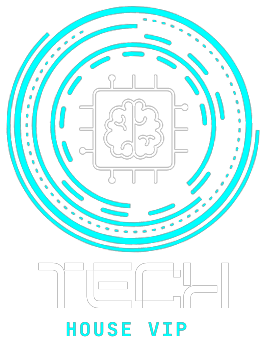Technology Breakthrough First Seen on Jeopardy: Advancements in AI and Its Impact
One of the notable technology breakthroughs first seen on the game show “Jeopardy!” was the IBM Watson system’s victory over human contestants in 2011. Watson, developed by IBM, demonstrated significant advancements in natural language processing and artificial intelligence.
Watson’s ability to understand and respond to complex natural language questions in real time was remarkable. It used various techniques, including machine learning, deep learning, and information retrieval, to analyze vast amounts of text data and generate accurate answers to questions posed in natural language. Read about Artificial Intelligence Stocks Under 10$

The Rise of AI in Jeopardy
Jeopardy, known for its challenging questions and intellectual rigor, witnessed a historic moment in 2011 when an AI system named Watson, developed by IBM, outperformed human champions in a game of knowledge and wit. This marked a significant milestone in AI, showcasing its potential to process vast amounts of information and provide accurate responses within seconds.
Behind Watson’s Triumph
Natural Language Processing (NLP)
Watson’s success on Jeopardy was attributed to its powerful Natural Language Processing (NLP) capabilities. With remarkable accuracy, this technology enabled Watson to understand and interpret human language, including idioms, metaphors, and puns.
Also read the Article: Aerospace Artificial Intelligence Market
Machine Learning
Machine learning algorithms played a crucial role in Watson’s ability to learn and adapt. Through continuous training on diverse datasets, Watson improved its performance over time, making it a formidable contestant on Jeopardy.
Big Data Handling
To excel on Jeopardy, Watson had to process vast amounts of data in real time. Its ability to sift through enormous datasets and extract relevant information showcased the potential of AI in handling big data.
The Impact on Various Industries
Healthcare
AI technologies inspired by Watson’s success are now aiding medical professionals in diagnosing diseases, analyzing medical records, and suggesting treatment options. This has significantly improved patient care and reduced diagnostic errors.
Customer Service
AI-powered chatbots and virtual assistants have become commonplace in customer service. They provide instant responses, enhance user experiences, and save businesses valuable time and resources.
Financial Services
In the financial sector, AI algorithms are used for fraud detection, risk assessment, and investment analysis. These applications have led to more secure financial transactions and better-informed investment decisions.
The Ethical Considerations
As AI continues to advance, ethical concerns have emerged. Questions about data privacy, algorithmic bias, and job displacement must be addressed. Striking a balance between innovation and responsible AI usage is crucial. For More Interesting Information Visit Our Website: Tech House Vip
The Future of AI
The technology breakthrough first seen on Jeopardy was just the beginning. AI is poised to revolutionize various industries further. Predictive analytics, autonomous vehicles, and personalized marketing are a few areas where AI will continue to make significant strides.
Conclusion
The technology breakthrough witnessed on Jeopardy with IBM’s Watson showcased the immense potential of AI in handling complex tasks with human-like precision. AI has already left an indelible mark on various industries, from healthcare to customer service and finance. However, as we progress, we must tread carefully, addressing ethical concerns and ensuring responsible AI development.
FAQs
Can AI completely replace human intelligence?
AI can perform specific tasks with remarkable precision, but it is unlikely to replicate the full spectrum of human intelligence, encompassing emotions, creativity, and empathy.
How is AI being used in education?
AI is used in education for personalized learning experiences, automated grading, and identifying areas where students need additional support.
What measures are in place to address AI’s ethical concerns?
Governments and organizations are working on regulations and guidelines to ensure ethical AI development, including algorithms and data privacy transparency.
Are there any risks associated with AI advancements?
Yes, there are risks, such as job displacement, algorithmic bias, and the potential misuse of AI for malicious purposes. These need to be carefully managed.
What is the role of AI in environmental sustainability?
AI is used to optimize energy consumption, predict environmental trends, and develop solutions for reducing the ecological footprint, making it a valuable tool in the quest for sustainability.
